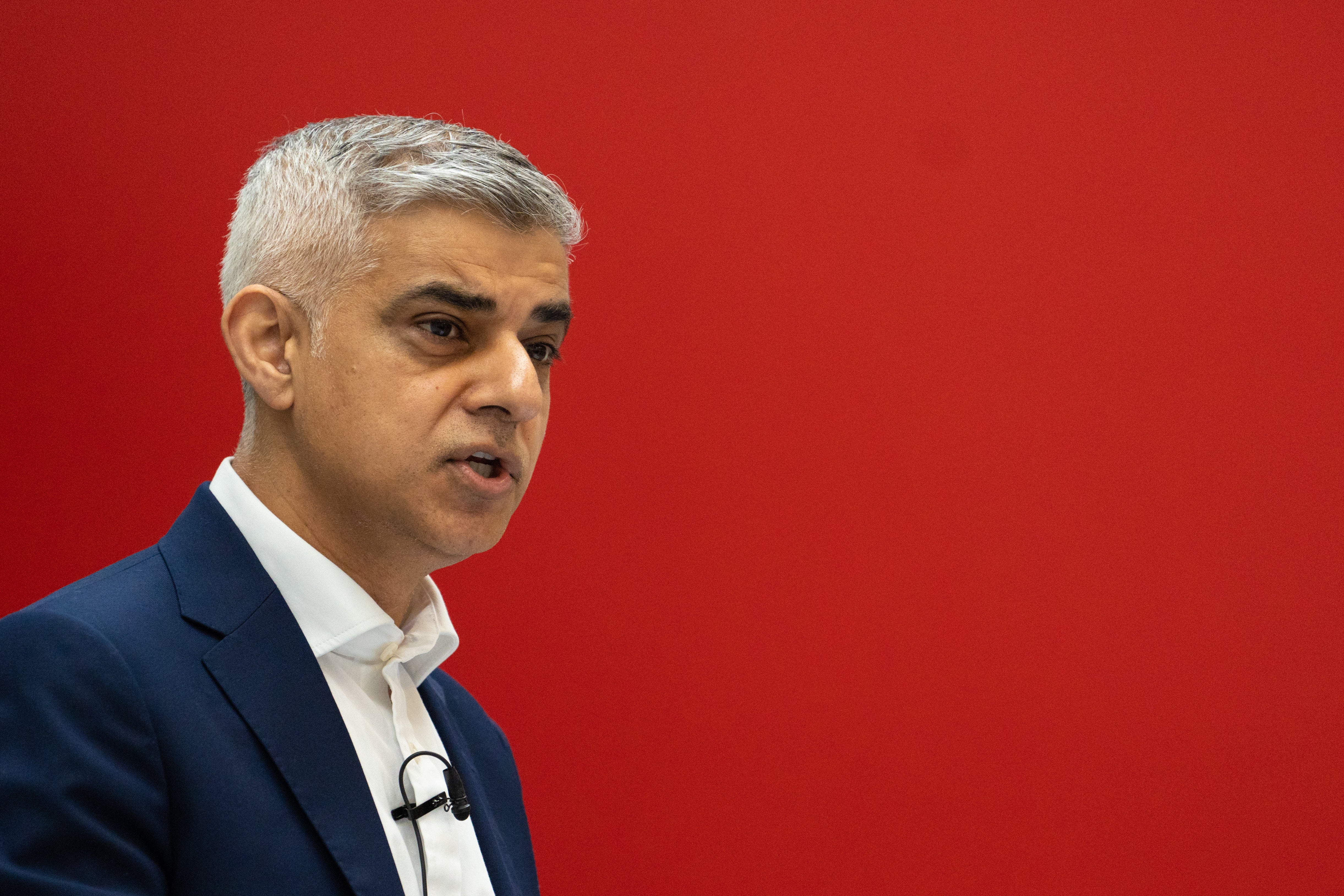Why I was right to introduce the Ulez charge
The policy has not only worked, it has worked better than expected, writes London mayor Sadiq Khan. Thanks to this initiative and others like it, we are well on our way to making the city a healthier, cleaner, more sustainable place for everybody


When I first ran to be mayor of London, experts told me it would take 193 years to bring the quality of the capital’s air within legal limits. Given the untold misery air pollution was inflicting in our city, continued delay was unconscionable.
The poison in our air is the gravest environmental threat to human health. Air pollution causes babies to be born underweight, children to grow up with stunted lungs, and increases the risk of adults developing lung cancer, heart disease and dementia. We know that dirty air in our capital also means thousands of people are taken before their time, with our poorest citizens and minority ethnic communities suffering the worst effects.
The question was not whether we had to act, but whether we had the courage to do so. Our response came in the form of a clean-air zone we called the ultra-low-emission zone (Ulez).
Since its introduction, the Ulez has proved to be one of the most effective public health and environmental initiatives established anywhere in the world and remains at the centre of our efforts to clean up London’s air. Thanks to the policies we put in place, the level of roadside nitrogen dioxide pollution has been cut in half since 2016.
When I took office, London had 455 schools located in areas with illegal levels of air pollution. At the last count, that number was under 20. Soon, it will be zero.
Despite its efficacy, it is no secret that expanding the Ulez London-wide last summer was contentious. A well-orchestrated, well-funded online misinformation campaign was established to subvert the policy. A group of Conservative-led municipal councils challenged the expansion in the High Court. The former prime minister, Rishi Sunak, went so far as to abandon key net zero policies. All this was done in the belief that by attacking the climate and clean-air agenda, they could advance a political one.
At the same time, it was also true that many Londoners held genuine concerns about the financial impact of the Ulez expansion. For this very reason, I launched a £210m scrappage scheme, open to all Londoners with a non-compliant vehicle to help the transition be just.
It is right to ask whether the Ulez expansion was worth it. Following a recent report, we can now say with confidence that it was. The London-wide Ulez has not only worked – it has worked better than expected!
Today, almost 10 million Londoners now breathe cleaner air. Pollution has been cut by over 20 per cent in outer London, compared to if we had done nothing, and our city’s air quality is improving at a faster rate than the rest of England average. Thanks to the London-wide expansion specifically, we have seen a reduction of 424 tonnes of toxic nitrogen oxide in outer London, equivalent to removing 200,000 cars from the road for a year.
Introducing and then expanding the Ulez was a tough decision, but it was the right one. Ultimately, the air we breathe should be a source of health, not harm.
Alongside the largest clean-air zone of its kind in the world, London now boasts the biggest zero-emission bus fleet in western Europe, we have also planted more than half a million trees since I became mayor, and quadrupled the size of our cycle network. The world’s most advanced cities look to London as the standard-bearer of climate and clean-air action.
In May, I was given the honour of being elected to serve as London’s mayor for a historic third term, in part due to the progress made, but also on the promise of more. The manifesto on which I stood recommitted London to achieving net zero by 2030. We also pledged to electrify the remainder of our bus fleet, clean up our rivers, continue to rewild our city, support schools to become net zero and establish London as the world’s first electric-vehicle-ready global city. None of this will be easy, but it can be accomplished.
Learning it would take nearly two centuries to realise the ambition of cleaning our air was daunting. Politics though, is not about shying away from our problems but confronting them. My experience has taught me that sometimes you just need to find a way. Today, because of the policies we introduced, we are now on course to bring London’s air quality within legal limits next year – 184 years earlier than projected.
The future of our common home hangs in the balance, but the progress London has achieved in tackling air pollution reminds us that we are not merely captured by fate. With urgency and determination, we can overcome the climate and environmental emergencies, shape a cleaner, healthier world for people today and leave a sustainable, liveable one for those tomorrow.
The Independent will be revealing its Climate100 List in September and hosting an event in New York, which can be attended online, to reserve your place click here.






Join our commenting forum
Join thought-provoking conversations, follow other Independent readers and see their replies
Comments